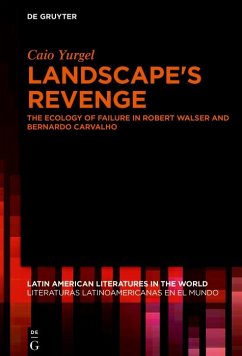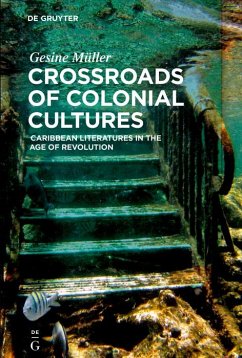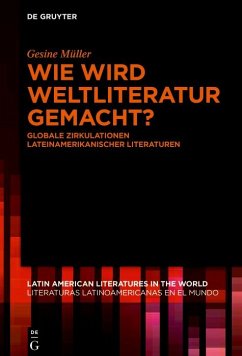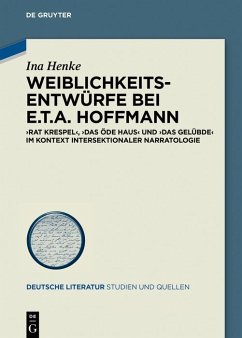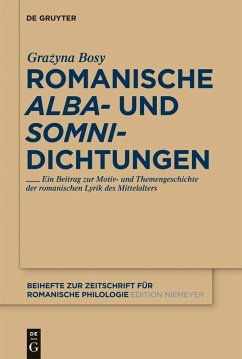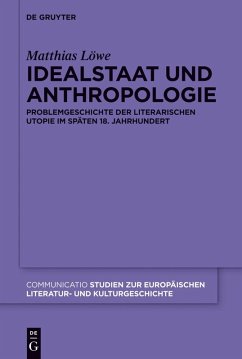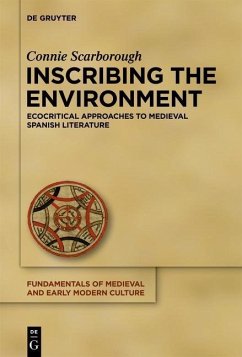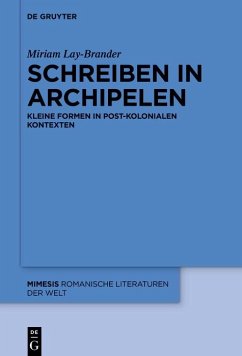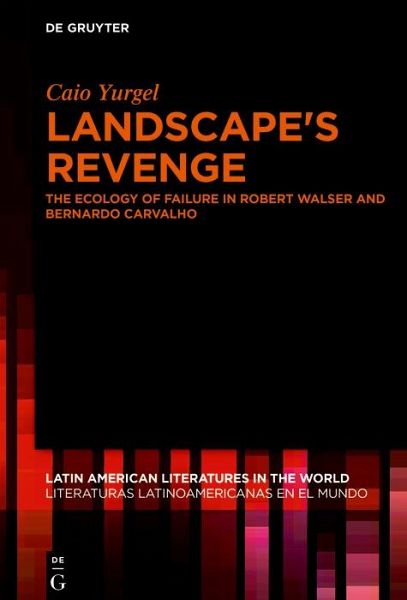
Landscape's Revenge (eBook, PDF)
The ecology of failure in Robert Walser and Bernardo Carvalho
Versandkostenfrei!
Sofort per Download lieferbar
0,00 €
inkl. MwSt.
Weitere Ausgaben:

PAYBACK Punkte
0 °P sammeln!
Landscape, as it appears and is described throughout the works of Bernardo Carvalho and Robert Walser, provides an excellent-yet virtually unexplored-pathway to the authors' literary projects. The landscape functions here as a synthetic and unifying figure that triggers, at first, through the analysis of its description per se, the main and most evident elements of the authors' works. However, when sustained as a methodological figure beyond the scope of its own description, the landscape soon reveals a darker, far more fascinating and far less explored side of the authors' oeuvres: a vengefu...
Landscape, as it appears and is described throughout the works of Bernardo Carvalho and Robert Walser, provides an excellent-yet virtually unexplored-pathway to the authors' literary projects.
The landscape functions here as a synthetic and unifying figure that triggers, at first, through the analysis of its description per se, the main and most evident elements of the authors' works. However, when sustained as a methodological figure beyond the scope of its own description, the landscape soon reveals a darker, far more fascinating and far less explored side of the authors' oeuvres: a vengeful, seemingly defeatist resentment against the status quo, which gives way to the more latent and biting elements of the authors' prose, such as irony, the unheimlich, an anti-heroic agenda, the apocalyptic aesthetics of a disaster-prone fictional world, as well as an understanding of history and literature through the figures of failure and marginality.
By drawing from diverse critical traditions from Latin-America and Europe, this comparative text seeks to unravel, in all of its complexity and scope, the fictional stage upon which Walser's and Carvalho's characters narrate, with their dying breath, a world that is slowly undoing itself.
The landscape functions here as a synthetic and unifying figure that triggers, at first, through the analysis of its description per se, the main and most evident elements of the authors' works. However, when sustained as a methodological figure beyond the scope of its own description, the landscape soon reveals a darker, far more fascinating and far less explored side of the authors' oeuvres: a vengeful, seemingly defeatist resentment against the status quo, which gives way to the more latent and biting elements of the authors' prose, such as irony, the unheimlich, an anti-heroic agenda, the apocalyptic aesthetics of a disaster-prone fictional world, as well as an understanding of history and literature through the figures of failure and marginality.
By drawing from diverse critical traditions from Latin-America and Europe, this comparative text seeks to unravel, in all of its complexity and scope, the fictional stage upon which Walser's and Carvalho's characters narrate, with their dying breath, a world that is slowly undoing itself.
Dieser Download kann aus rechtlichen Gründen nur mit Rechnungsadresse in A, B, BG, CY, CZ, D, DK, EW, E, FIN, F, GR, HR, H, IRL, I, LT, L, LR, M, NL, PL, P, R, S, SLO, SK ausgeliefert werden.




